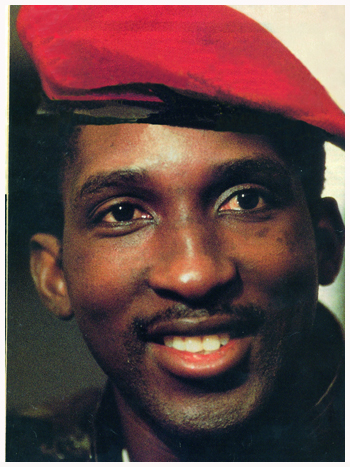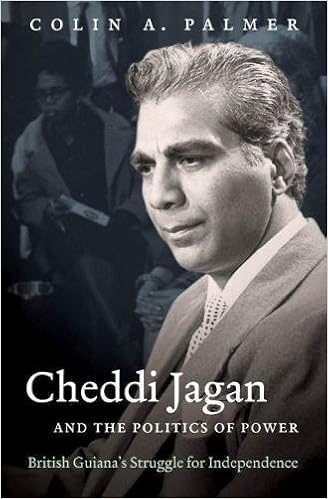https://www.uncpress.org/book/9781469615011/cheddi-jagan-and-the-politics-of-power/
http://guyanachronicle.com/2010/11/24/cheddi-jagan-and-the-politics-of-power-2
https://www.stabroeknews.com/2018/features/03/22/the-life-and-times-of-dr-cheddi-jagan-in-pictures/
https://www.stabroeknews.com/2018/features/03/22/the-life-and-times-of-dr-cheddi-jagan-in-pictures
Of Interest
https://stanislauscollege.blogspot.ca/2012/07/1953-suspension-of-bg-constitution.html
https://www.independent.co.uk/news/people/obituary-cheddi-jagan-1271457.html
http://www.jagan.org/CJ%20Tributes/Remembering/remembering_cj15.html
https://www.theguardian.com/world/2009/mar/30/janet-jagan-guyana-america-marxist
https://stanislauscollege.blogspot.ca/search?q=janet+jagan
https://guyanatimesgy.com/tributes-flow-as-iac-remembers-dr-cheddi-jagan/
https://www.goodreads.com/book/show/8598327-cheddi-jagan-and-the-politics-of-power
https://guyaneseonline.wordpress.com/2018/05/05/reflections-on-cheddi-jagan-1918-1997-by-ralph-ramkarran/
Obituary on His Birth Centenary (from Facebook)
THE FOLLOWING WAS PREPARED FOR PRESENTATION AT A SYMPOSIUM ON CHEDDI JAGAN ON THE INVITATION BY THE INDIAN ARRIVAL COMMITTEE (IAC). HOWEVER I WAS SUBSEQUENTLY UNINVITED FOR REASONS KNOWN ONLY TO THAT BODY AND ITS FRIENDS.
WHAT A SHAME!!
Nowadays, there are many in our midst who tend to shy away from engaging in robust, constructive discussion, debate or polemic on the question of ideology.
Such individuals or groups of individuals tend to seek refuge in what they describe as a ‘pragmatic approach’ which in effect, shuns objective truth by the criterion of practice and opts for what meets the subjective interests of the individual or group of individuals.
They do so precisely for the sake of preserving their personal or group
self-interests and by not wanting to offend those who espouse a radically different ideology basically, for opportunistic reasons in their quest for political power.
The world in which we live is a global village.The main centers of economic, financial and military power are governed by politicians, military men and financial
oligarchs who, beyond the shadow of a doubt, adhere to collective and individual ideological beliefs of different hues and shades.
This applies to a) In China where recently President Xi was installed as ‘President for life.’
b) In Russia where president Putin has established electoral laws and regulations that effectively debars any other political party from challenging his party’s presidential candidate.
c) In the USA where President Trump fires anyone willy nilly so long as they do not share his ideological beliefs.
d) In the European Union where ideological differences prevail on the hot issue of refugees, Brexit and Turkey’s admission to the Union.
And finally, e) on the Korean Peninsula where ideological, political and military views are critical in determining the way forward.
In sum, in all these developments, it is fundamentally ideology that is the driving force in politics ‘a concentrated form of economics.’
Ideology is a system of political,legal, ethical , aesthetical , religious and philosophical views and ideas.
Ideology is part of the superstructure which rests on the economic base. It therefore reflects economic relations.
The development of ideology is ultimately determined by the economy, though ideology possess a certain relative independence from economics.
When the APNU+AFC decided to close the sugar industry and to throw thousands of sugar workers on to the breadlines they used economic and financial arguments to justify their decision. However, it was their anti-working class ideology that was the underlying ‘outside’ motivating force.
The act of closing down the sugar industry was, by its very nature, consistent with the anti-working class ideology of a bureaucratic military class of people who currently weilds political power in Guyana.
This brings us back to the well established narrative that economic decisions usually find expression in the ideology of those in power as well as those out power since, those out of power, would naturally advance alternative economic measures to those of the ruling elite.
Those alternative economic measures would find expression in the ideological beliefs of those who advance their own alternative economic proposals.
Every individual or social class, irrespective of their relationship to the means of production say, a worker or proprietor of a factory; of distribution, say a worker or owner of a distribution network of soft drinks; or exchange, say an employee or owner of a bank; would be ideologically conscious of their economic conditions due to their relationship to the productive or services sector, irrespective of the level at which they function.
Under these conditions, it is not unusual to find from time to time, a clash of contending ideologies within organizations in the wider society and even between and within countries.
In the case of the latter, witness recent developments between the Trump administration and China,in respect to the imminent trade war on steel and aluminum; between Britain and Russia over the alleged use of nerve gas on a former Russian spy and his daughter and between Israel and Iran over the growing influence of Iran in the Middle East.
While these occurrences may appear as contending economic interests of individuals,groups of people and countries, their overarching motivation would be of an ideological nature.
Ideologically, our globalized world, is characterized by the emergence of two dominant ideologies; the neo-liberal and the populist ideologies.
And while these two ideologies have many elements in common such as emphasis of the market place, minimum state intervention and the sanctity of private property they depart on certain issues such as safeguarding the safety and freedom of the individual.
The populist ideology basically establishes a framework of a ‘pure people versus a corrupt elite’ who upholds an archaic establishment that rots in outdated customs and practices( Shades of Trump’s ‘drain the swamp’).
Moreover, this rather ‘thin ideology’ branded populism, finds expression in all sorts of ‘thick’ ideologies with moving components such as pro-socialist,anti-capitalist, nationalism, anti-imperialism and racism.
On the other hand,populism of the Left or the Rightist is bad news for the rights of political minorities,established organizational principles, and the rule of law.
In that sense, populism of both the Right and the Left are potentially anti-democratic and authoritarian since both are viewed by those who are spell bound by it as the ‘sole legitimate’ representative of the people. At the sametime, its opponents are deemed irrelevant and illegitimate, who should marginalized and even destroyed.
This is a good example which shows that ideologies are neither limited in their boundaries nor linear in their vertical or horizontal descent or ascent.
I again emphasize, that while ideology is an independent trend that knows no bounds irrespective of its shade or hue,it’s origins are to be found in the economic base on which it rests as an integral part of the superstructure.
When Karl Marx wrote in his Eighteenth Brumaire Louis Bonaparte that:
“Men make their own history,but they do not make it just as they please;they do not make it under circumstances chosen by themselves, but under circumstances given and transmitted from the past...” he was referring to the historiography and evolution of ideology as well as the changes that would affect its contours and emphasis but not the core concepts which remain intact and represent the changing parts of an ideology.
Thus, ideology may develop and change over time.
Under specific conditions, ideological rifts may emerge in political parties. Such rifts, if not managed skillfully has the potential to undo principles that have stood the test of time and ultimately, can result in the break up of parties and the emergence and dominance of a populist approach, pragmatism and a neo-liberal ideology.
This is precisely what occurred in 1955 with the split in the PPP. That split was not racial it was fundamentally ideologically motivated.
This brings us to ideology and Cheddi Jagan.
Established in 1946, the Political Affairs Committee (PAC),forerunner of the PPP, was committed to the propagation of “scientific socialism.”
4 years later, the PPP came into existence. The party was led by Marxists, but with a large section of the leadership being non-Marxists.
The party declared itself “ a revolutionary national party dedicated to end foreign domination, to transform the economy and to bring about social justice.”
In essence, the party had now expressed where it stood ideologically.
It declared in favour of a broad-based but patriotic ideological orientation with a view to ensuring that ideological rigidity and ethnicity do not become divisive factors in the struggle to achieve national unity and independence.
Because the PPP’s ideological platform reflected the aims and aspirations of the working people its ideology became a material force that gripped the masses resulting in mobilization and action that eventuated in the winning of government in 1953,1957 and 1961. And much later, from 1992 to 2015.
While Jagan was in opposition it was ‘Straight Talk’ ideologically, however long before assuming office in 1992 his ideology began evolve and assumed a progressive, national democratic character.
The collapse of the USSR and with it, the socialist block of countries in Eastern Europe must have had a tremendous impact on Jagan’s ideological orientation.
What is true however is that the core concepts based on the ‘three sources and key components parts’ of his Marxist beliefs remained intact and was reflected in his masterful application of scientific theory when he brought into life the civic component of the PPP electoral alliance known as the PPP/C.
In effect, Jagan had returned to the earlier period of the PPP when it had adopted a broad-based, but patriotic ideological orientation, shunning ideological rigidity and exclusivity.
Further, being an internationalist thinker and practitioner, Jagan in extrapolating from his domestic praxis of ideological flexibility , inclusiveness, and partnership formulated the concept of a New Global Order which was eventually adopted by CARICOM, the Commonwealth, the Rio Group and the United Nations.
Having won government in 1992, Jagan advanced the need for the new government to ‘walk between the raindrops’ and to exert every effort to ‘strike a balance between transformation and conformism.’
At the sametime, Jagan made it clear to the businesses community and other social and political forces that his new government ‘would not dominate nor would it want to be dominated.’
In other words, while holding to the core concepts of his ideological beliefs, the contours and emphasis of whichhad evolved overtime, Jagan sought on the one hand, to transform Guyana’s economy, while at the sametime conforming to the new global realities that had emerged with neo-liberalism emerging as the dominant ideology world-wide.
Jagan’s ideological rebirth was to find expression in his call for the establishment of a ‘National Democratic State administered by a plural
democratic government with liberal
and humane socialist beliefs and in partnership with the whole people for the common good of Guyana.’
To the world at large he made it clear that while foreign capital and investments, preferably in joint ventures were welcomed; ‘our economic, social and environmental objectives must be fully recognized, and due respect is given for our laws, our independence and sovereignty.’
Anyone who is disillusioned with Jagan’s ideology and do not see it as the future is bound to wage war against it.
Their short-sightedness will eventually find them ideologically on the side of the financial and business elites and eventually in the camp of the anti-working class, authoritarian proponents.
Unless there is a genuine, rules-based partnership characterized by mutual respect and understanding that is critical for confidence-building between the proponents and followers of various ideologies the partnership/ camaraderie will fail.
The PPP has been the quintessence of ideological principles in Guyana.
Every printed and spoken word of Cheddi Jagan was impregnated with concepts based on progressive, forward-thinking scientific theory and practice.
His life work was neither stagnant nor sterile. On the contrary, it was a guide to action.
Up to the time of his passing Jagan did not capitulate ideologically.
Jagan lived and died as he would have asked others.






/arc-anglerfish-tgam-prod-tgam.s3.amazonaws.com/public/UFYJUIUGGNHNBI6U3G52B7XRCQ)




